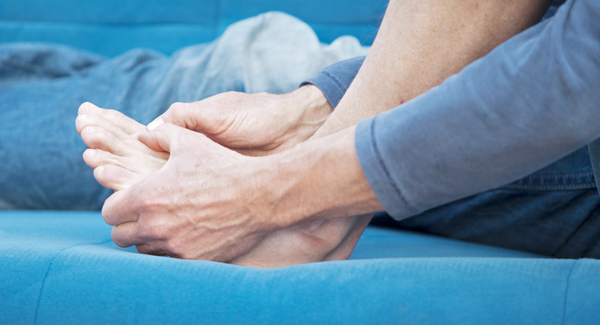How Fat Affects Gout
Excess weight increases your risk of gout and health problems that go along with it.
Why Fat Matters
Gout occurs when excess uric acid builds up in your body, causing sharp crystals to lodge in your joints. Uric acid naturally forms when you break down purines — a compound found in most foods, but especially red meat, shellfish and beer. Normally, uric acid is eliminated through the kidneys. But the more you weigh, the less efficiently your kidneys work. This puts you at higher risk of gout — a tenfold or more risk for the heaviest people, according to gout expert Hyon Choi, MD, a professor of medicine and director of clinical epidemiology in rheumatology at Massachusetts General Hospital in Boston. You’re also more likely to develop gout a decade sooner than healthy-weight people.
Where you put on pounds matters, too. People who have visceral fat (belly fat) – even if they’re not technically overweight – are more likely to develop gout. That may be because belly fat produces more of the inflammatory chemicals that can trigger the disease than does subcutaneous fat (like on your thighs).
Other Health Problems
People with gout tend to have other serious health problems, including diabetes, high blood pressure, heart disease and stroke. Studies suggest that inflammation is the common thread, not gout itself. Obesity also is a risk factor for several of these comorbidities. Gout’s not just a “pain in the big toe – it affects other organs, too, including the heart, says Jasvinder Singh, MD, a gout researcher and professor of medicine and epidemiology at the University of Alabama, Birmingham.
Lifestyle Matters
Your diet’s really important in gout; certain foods are known to trigger attacks. But a diet that simply eliminates purine-rich foods may not be enought. A better approach, doctors say, is to adopt an all-round healthy way of eating such as the DASH or Mediterranean diet. Both limit red meat, sugar and processed foods and focus on fresh fruits and vegetables, some whole grains and healthy fats like olive oil. Exercise and weight loss also bring down uric acid levels and help prevent gout flares. In one small trial, patients who lost 16 pounds dropped their uric acid levels by 3 points.
“Lifestyle matters a lot in gout, like it does for diabetes. You can control gout if you really stick to good lifestyle choices,” Dr. Choi says.
Medications
There are two schools of thought about the use of uric acid-lowering medications for gout. Some doctors think they’re mainly necessary for people who have many gout attacks, kidney stones or uric acid deposits called tophi. Others believe anyone who has had one or two gout attacks should take them. These drugs have not been shown to prevent conditions often associated with gout like heart and kidney disease, and they can have serious side effects. The Food and Drug Administration (FDA) issued its strongest safety warning for the gout drug febuxostat (Uloric). A post-marketing study found a higher risk of death with febuxostat than with a rival gout medicine, allopurinol (Zyloprim). Be sure to discuss the risks and benefits of gout medication with your doctor.
Diagnosed With Gout?
Get the latest news and tips about living with Gout in the Living Your Yes! newsletter.



